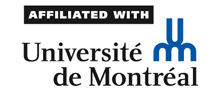By Patrik Ohberg (University of Gothenburg) and Annika Fredén (Lund University)
What is the story?
Sweden has lived an unprecedented political turmoil these last months. In a preceding blog post, we pointed out that the rather unique Swedish political culture of compromise was threatened by the success of the populist anti-immigration Sweden Democratic Party. The minority government that was appointed right after the 2014 national election was not able to make its budget approved by the parliament. The Prime Minister Stefan Löfven decided to call a snap election that was supposed to be held on March 22, 2015.
However, there will not be a snap election next March. Right after Christmas, the political culture of compromise of Sweden knew a revival. The main parties managed to sign a major agreement, called the ‘December agreement’, as to avoid the organization of a snap election. In this post, we describe this agreement and its consequences.
The December agreement
On December 27, the Prime Minister and leader of the Social Democratic Party Stefan Löfven signed an agreement with the party leaders of all the parties of the two main coalitions. The Swedish party system revolves around two coalition blocs: a centre-right and a centre-left coalition. The agreement states that the budget of the coalition that obtains the largest vote share at a national election, and which typically forms the next government, will be automatically approved. It will thus make life easier for minority governments in the future. Their budget will be automatically approved even if only a minority of the parliamentarians supports it. The agreement is supposed to last until 2022.
The reason for this agreement lies in the recent evolution of the Swedish party system. The populist anti-immigration Sweden Democratic Party is increasingly popular among voters. The party came third at last national election with 13% of the votes. It thus controls a substantive portion of the parliamentary seats that is still growing from election to election. This makes the formation of minority governments very likely in the future. However, the Sweden Democrats are not part of any coalition and are thus, by default, excluded from government and power. In order to exert some influence, they decided, from now on, to systematically vote in favour of the opposition’s budget to create a gridlock. The party leaders said that they would continue this strategy until their demand for stricter immigration policies has been met. The agreement is thus a way to cut the grass under the strategy of the Sweden Democratic Party.
The consequences
Although the December agreement is a sign that the Swedish political system somehow goes back to normal, the turmoil of these last months is not without consequences, especially for parties of the centre-right coalition. First, most of the parties composing this coalition have started to rethink their position regarding immigration. For example, some of them recently indicated they would be in favour of stricter conditions for granting permanent residency.
Also, the leaders of the Christian Democratic Party and of the Liberal People’s Party are on the verge of being replaced. This might in turn lead to a re-positioning of these two parties as well and a weakening of the centre-right coalition. Although the crisis is over and Sweden has seemingly returned to a politically stable period, we will surely still see the consequences of the political crisis in the coming months.

One Comment
Thanks Patrik and Annika for this very interesting blog post. It’s always nice to follow how politics evolves in Sweden.
From the outside, it seems somewhat paradoxical though. The way to maintain a culture of compromise would be to reach an agreement that makes sure a minority coalition does not have to reach agreement-or does not have to make compromise-with the opposition coalition in order to pass its budget. Is this meant to bring back the culture of compromise or is it more about keeping the existing party system solid and unshakable?